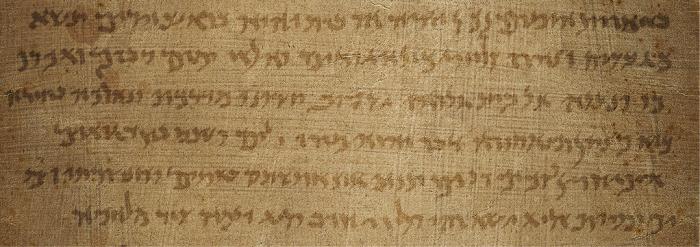
1.13 In what language was the Bible written?
Many of the books in the Old Testament were written between 1200 and 100 BC in Hebrew, the language of the people of Israel. From the sixth century BC onwards, Aramaic became increasingly common. Some parts of the Old Testament were written in this language, the main language spoken in the Holy Land during the time of Jesus.
Between 300 and 100 BC, the Scriptures were translated into Greek (this translation is called the Septuagint), because during this time Greek was spoken more frequently than Hebrew. The New Testament was written in Greek.
What is the Canon of Scripture?
The Canon of Scripture is the complete list of the sacred writings which the Church has come to recognize through Apostolic Tradition. The Canon consists of 46 books of the Old Testament and 27 of the New. [CCCC 20]
What is the right way to read the Bible?
The right way to read Sacred Scripture is to read it prayerfully, in other words, with the help of the Holy Spirit, under whose influence it came into being. It is God’s word and contains God’s essential communication to us.
The Bible is like a long letter written by God to each one of us. For this reason I should accept the Sacred Scriptures with great love and reverence. First of all, it is important really to read God’s letter, in other words, not to pick out details while paying no attention to the whole message. Then I must interpret the whole message with a view to its heart and mystery: Jesus Christ, of whom the whole Bible speaks, even the Old Testament. Therefore I should read the Sacred Scriptures in the faith that gave rise to them, the same living faith of the Church. [Youcat 16]
What significance does the Old Testament have for Christians?
In the Old Testament God reveals himself as the Creator and preserver of the world and as the leader and instructor of mankind. The Old Testament books are also God’s Word and Sacred Scripture. Without the Old Testament, we cannot understand Jesus.
In the Old Testament a great history of learning the faith begins, which takes a decisive turn in the New Testament and arrives at its destination with the end of the world and Christ’s second coming. The Old Testament is far more than a mere prelude for the New. The commandments and prophecies for the people of the Old Covenant and the promises that are contained in it for all men were never revoked. In the books of the Old Covenant we find an irreplaceable treasure of prayers and wisdom; in particular, the Psalms are part of the Church’s daily prayer. [Youcat 17]
What significance does the New Testament have for Christians?
In the New Testament God’s revelation is completed. The four Gospels according to Matthew, Mark, Luke, and John are the centerpiece of Sacred Scripture and the most precious treasure of the Church. In them the Son of God shows himself as he is and encounters us. In the Acts of the Apostles we learn about the beginnings of the Church and the working of the Holy Spirit. In the letters written by the apostles, all facets of human life are set in the light of Christ. In the Book of Revelation we foresee the end of the ages.
Jesus is everything that God would like to tell us. The entire Old Testament prepares for the Incarnation of God’s Son. All of God’s promises find their fulfillment in Jesus. To be a Christian means to unite oneself ever more deeply with the life of Christ. To do that, one must read and live the Gospels. Madeleine Delbrêl says, “Through his Word God tells us what he is and what he wants; he says it definitively and says it for each individual day. When we hold our Gospel book in our hands, we should reflect that in it dwells the Word that wants to become flesh in us, desires to take hold of us, so that we might begin his life anew in a new place, at a new time, in a new human setting.” [Youcat 18]
The words of God, expressed in human language, are in every way like human speech, just as the word of the eternal Father, when he took on himself the weak flesh of human beings, became like them. [Pope Benedict XVI, Verbum Domini, n. 18]





